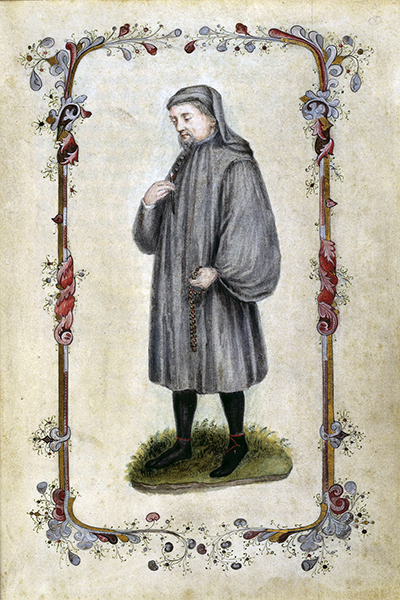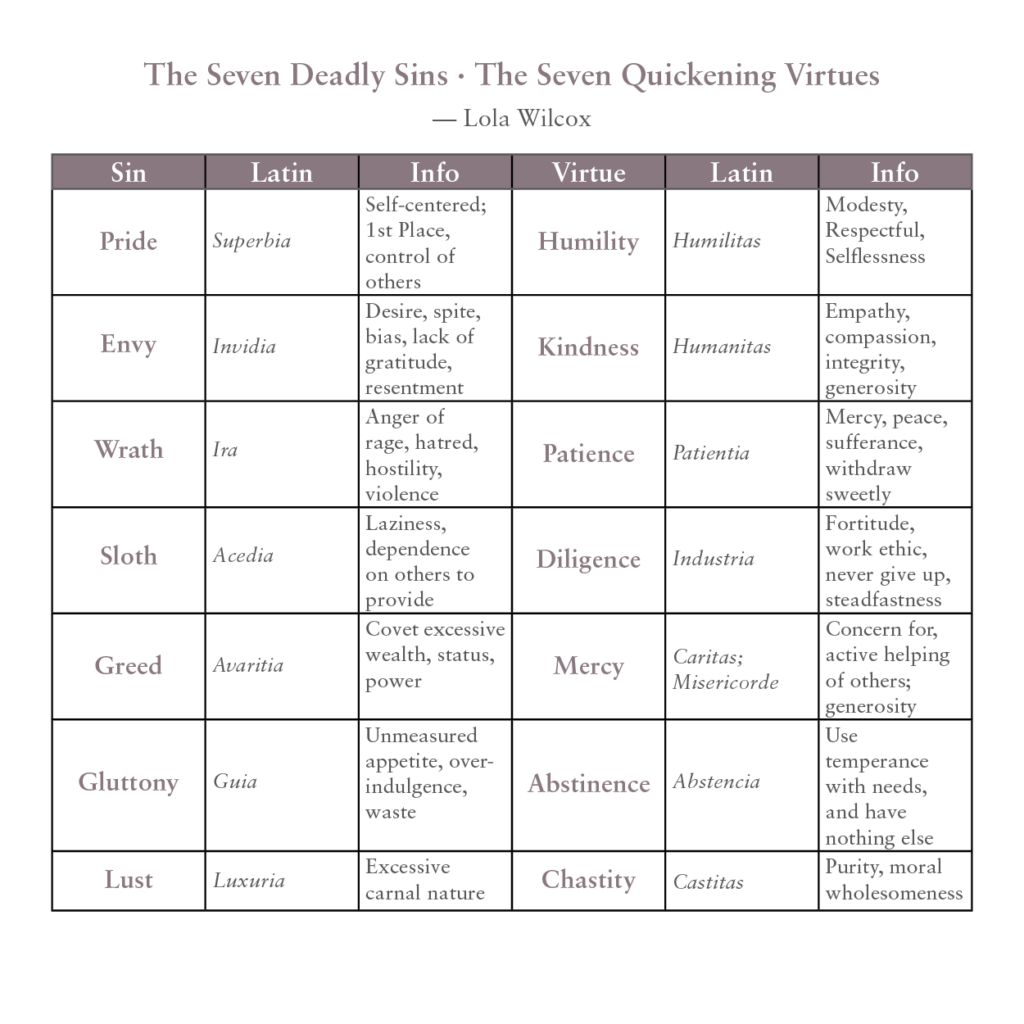
The Middle Way to Transformation
By Lola Wilcox
We begin Lent recognizing we are human and sin daily. We may lack an ability to do what needs to be done to heal the earth, the rifts in our families and communities, or even ourselves of habits that separate us from God’s design for our healthful, whole and happy being. We pray “Forgive us what we have done, and what we have left undone.” In focusing on the forgiveness of our sins we may miss that the sin is a polar opposite to a virtue, and that by embracing both the illness and the cure we are transformed.
Geoffrey Chaucer (Canterbury Tales) in his Parson’s Tale identifies seven classic deadly sins/ills that bring death to the soul, and to those around the sinner. Chaucer also gives the seven quickening, life-giving cures/virtues paired with those sins. They are: Chastity/Lust; Abstinence/Gluttony; Charity/Greed; Diligence/Sloth; Patience/Anger; Kindness/Envy; Humility/Pride. Each of these sins and virtues, illnesses and cures is a continuum. We find ourselves somewhere on each of these seven. We may discover we are very attracted to one end of these pairs, perhaps experiencing dismay or disgust at the other. These very reactions point us to our path of transformation.
We are not transformed by embracing the opposite polar end, but in discovering a middle way between them. Complete abstinence kills as surely as gluttony, and it is in temperance that we find health. Without pride we are a doormat; too much pride puffs up an unlikeable person; it is the middle ground, perhaps called self-esteem, that we offer what is required to have strong relationships. Envy of others shows us something we want in our lives; in being kind to ourselves we accept our desire, and by being kind to the one we envy, we learn. Total diligence leaves us longing for leisure time. Using the sin as a pointer to the cure helps us understand the two horns of our dilemma. In understanding and loving the lesser parts of ourselves we begin our transformation.
The radical idea in these teachings is that when we recognize and embrace our sin we are healed. Throughout Jesus’ life we see him name the sin, and embrace the sinner, calling the individual to transform and choose another life. Particularly in Lent an exploration of our particular sin/virtue, ill/cure may encourage us to make right choices, now and forever more.


